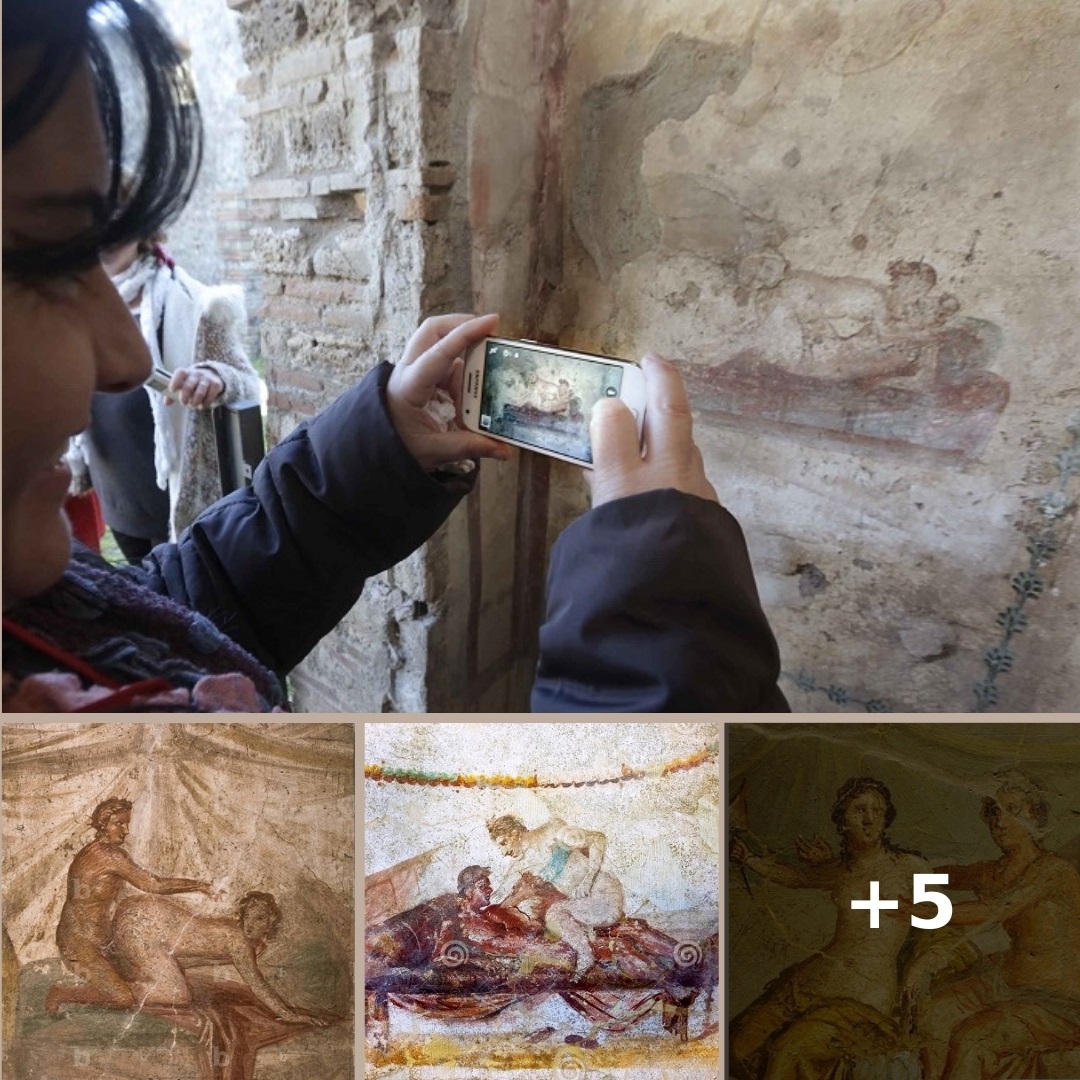The ‘Lupanar of Pompeii’ features a number of old wall paintings which show explicit scenes
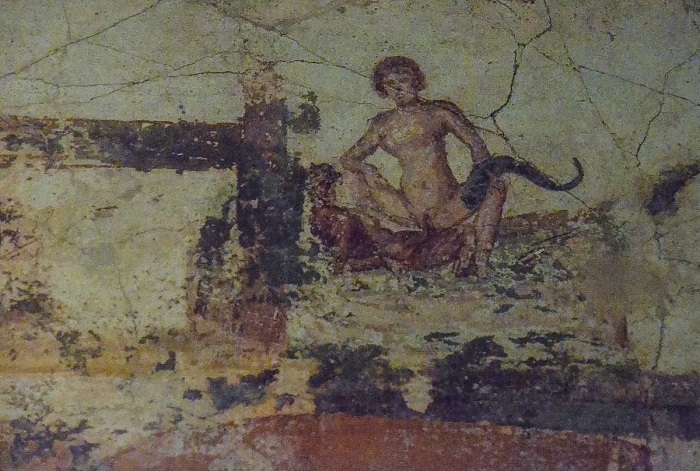
RAUNCHY services offered in Roman brothels more than 2,000 years ago have been revealed through wall paintings in Pompeii.
The ‘Lupanar of Pompeii’ features a number of old wall paintings which show explicit scenes.
The famous brothel, which once had ten rooms, was popular with men before the Roman city was wiped out in 79AD.
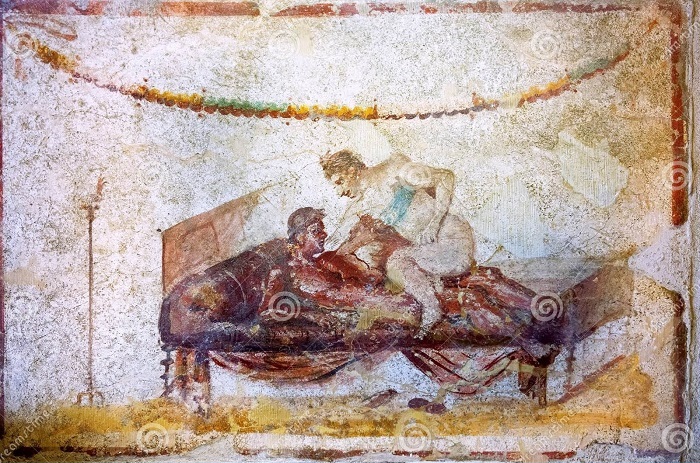
It has become a major tourist attraction since it was reopened to the public in 2006.
It is believed the paintings, which depict group sex and many other acts, indicate the various services on offer.
Each one of the ten rooms in the brothel contained a stone bed which was covered with a mattress where the prostitute would entertain clients.
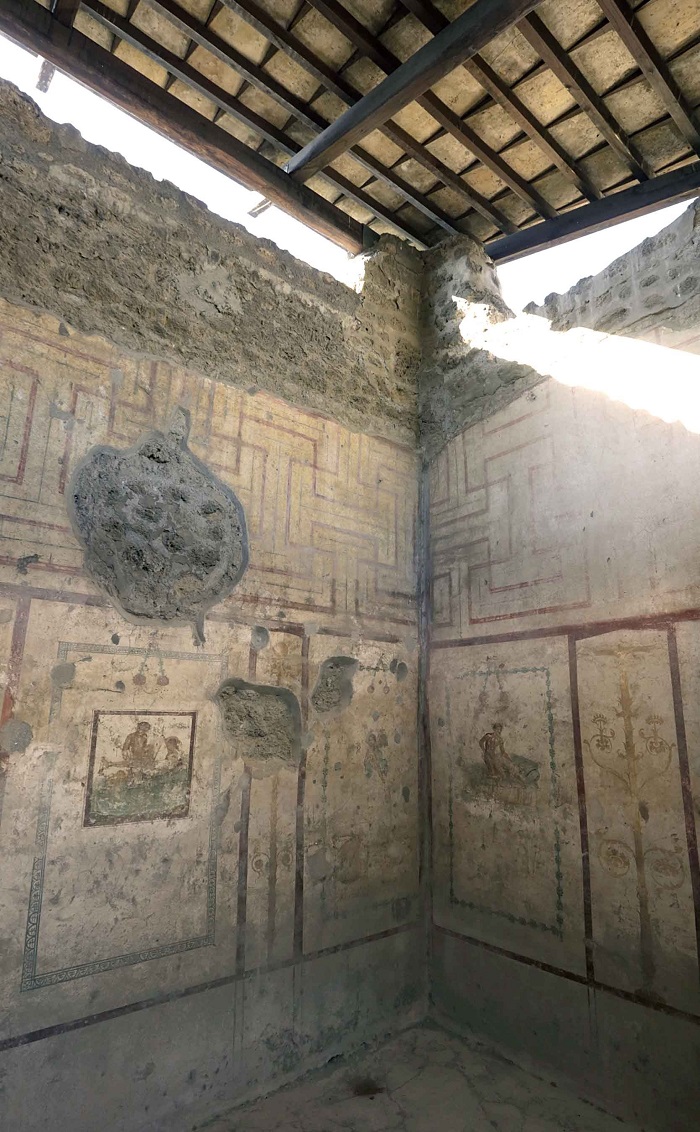
It has been suggested however that the images on the wall are an idealised version of sex and that the reality for those living in the brothel was much more grimmer.
Some researchers believe prostitutes in Pompeii were slaves and were not trained in any profession meaning they had no real alternatives for work.
Also they believe the chambers of the brothel were windowless, cramped and uncomfortable places.
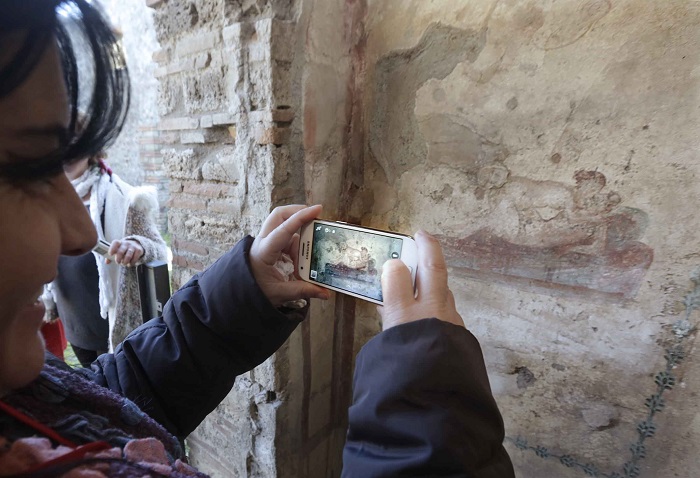
Western University Professor Kelly Olson, who has visited the site, spoke to CBC’s programme ‘The Nature of Things’.
She said: “It is not a very nice place to work.
“It’s very small, dank and the rooms are rather dark and uncomfortable.”
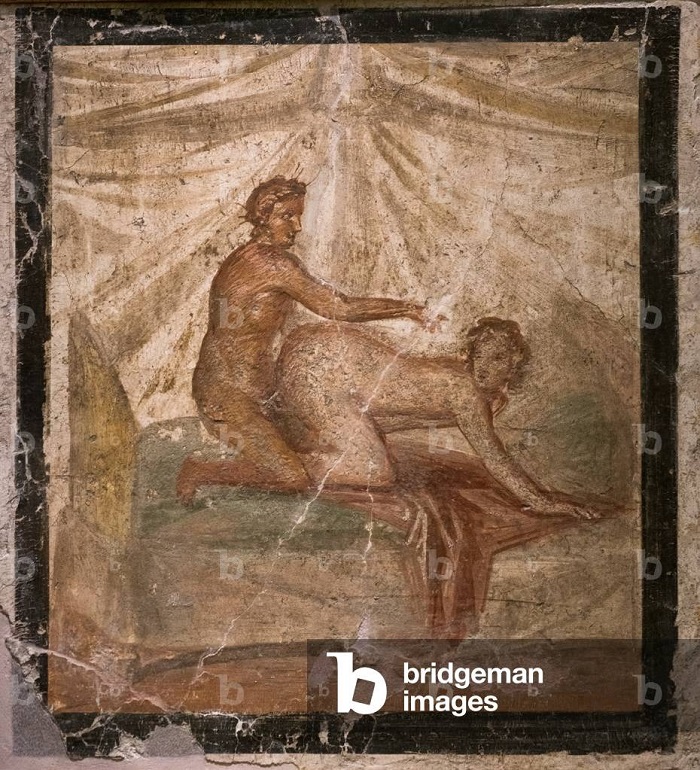
Oslon also explained how prostitution was legal in Pompeii but most of the woman were slaves.
She added: “Married men could sleep with anyone as long as they kept their hands off other men’s wives.
“Married women were not supposed to have sex with anyone else.”
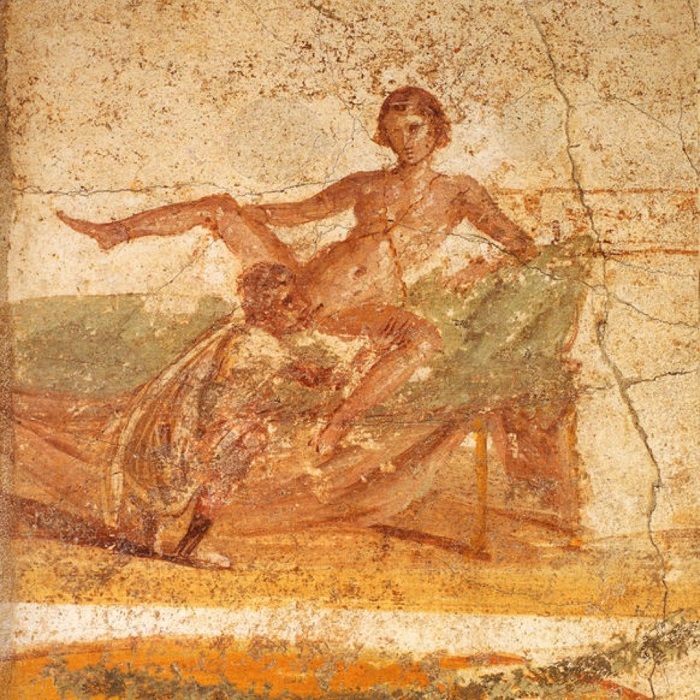
Despite being closed for more than 2,000 years, some holiday makers have attempted to re-christen the building, the Daily Mail has reported.
Three French people were arrested in 2014 for trespassing after reportedly breaking into the site for a late night romp.
6Located near Naples in Italy – most parts of Pompeii were destroyed following an eruption of Mount Vesuvuis in 79AD
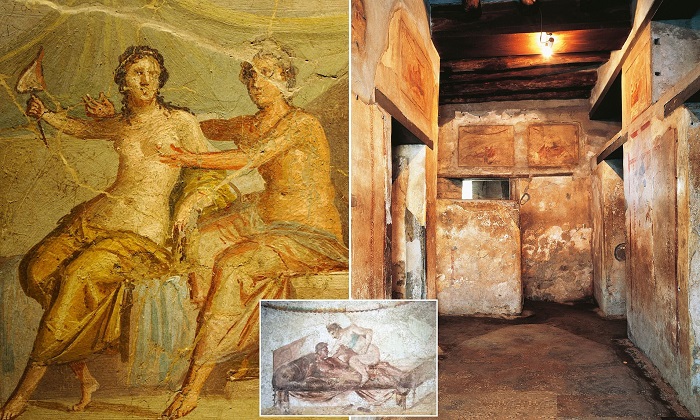
Pompeii is an ancient Roman town near Naples in Italy.
An eruption of Mount Vesuvius in 79AD destroyed and buried most of the city under between 13 and 20ft of volcanic ash and pumice.
The city’s sudden burial actually protected it against vandalism, looting and the destructive effects of climate and weather.
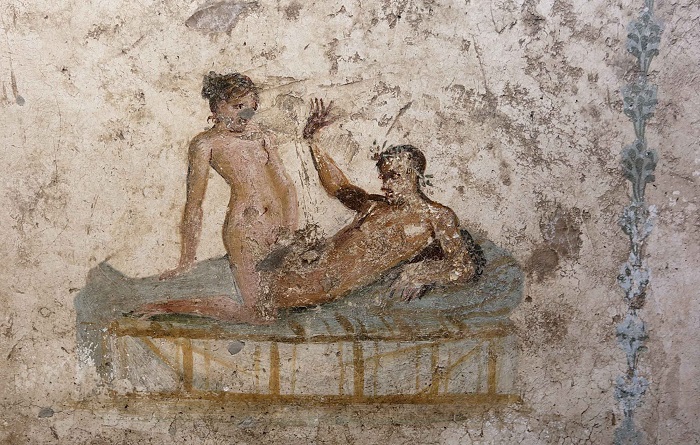
The ruins of Pompeii were first discovered in the 16th Century and a number of artefacts were uncovered.
It is known as a Roman town frozen in time and now is a popular tourist destination and sees up to 2.5m visitors a year who are able to look around Roman shops, baths and houses.
The city also has UNESCO World Heritage Site status, which means it is recognised as a historic landmark and is protected by international treaties.
